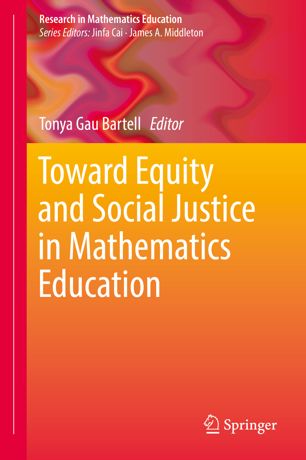

Most ebook files are in PDF format, so you can easily read them using various software such as Foxit Reader or directly on the Google Chrome browser.
Some ebook files are released by publishers in other formats such as .awz, .mobi, .epub, .fb2, etc. You may need to install specific software to read these formats on mobile/PC, such as Calibre.
Please read the tutorial at this link: https://ebookbell.com/faq
We offer FREE conversion to the popular formats you request; however, this may take some time. Therefore, right after payment, please email us, and we will try to provide the service as quickly as possible.
For some exceptional file formats or broken links (if any), please refrain from opening any disputes. Instead, email us first, and we will try to assist within a maximum of 6 hours.
EbookBell Team

4.3
68 reviewsThis critical volume responds to the enduring challenge in mathematics education of addressing the needs of marginalized students in school mathematics, and stems from the 2015 Annual Meeting of the North American Group of the Psychology of Mathematics Education (PME-NA). This timely analysis brings greater clarity and support to such challenges by narrowing in on four foci: theoretical and political perspectives toward equity and justice in mathematics education, identifying and connecting to family and community funds of knowledge, student learning and engagement in preK-12 mathematics classrooms, and supporting teachers in addressing the needs of marginalized learners. Each of these areas examines how race, class, culture, power, justice and mathematics teaching and learning intersect in mathematics education to sustain or disrupt inequities, and include contributions from scholars writing about mathematics education in diverse contexts.
Included in the coverage:
Toward Equity and Social Justice in Mathematics Education is of significant interest to mathematics teacher educators and mathematics education researchers currently addressing the needs of marginalized students in school mathematics. It is also relevant to teachers of related disciplines, administrators, and instructional designers interested in pushing our thinking and work toward equity and justice in mathematics education.